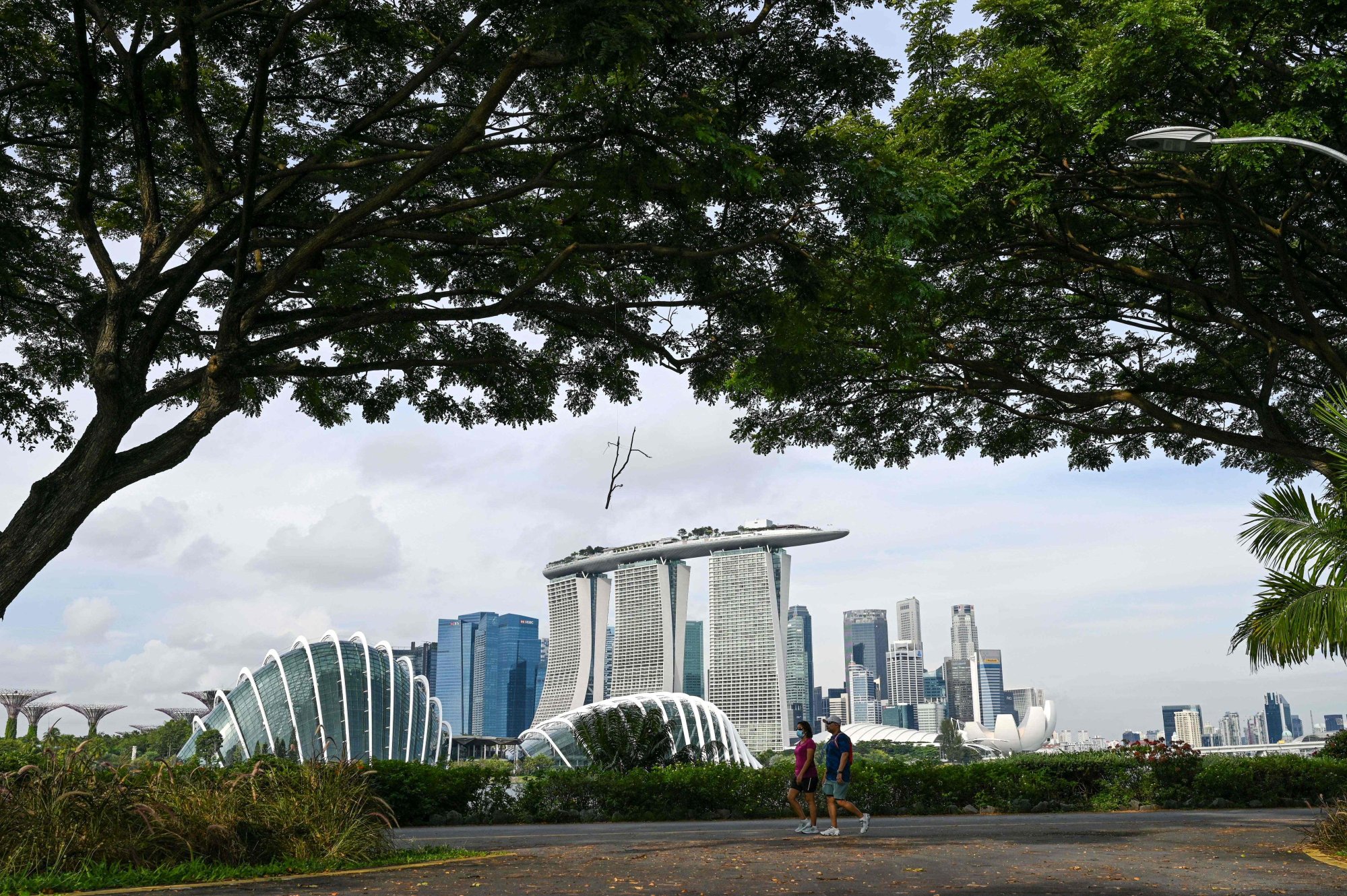
US should take a back seat at democracy summit and look instead to Europe, East Asian economies
- The meeting is an excuse for the US to belittle its rivals, but the country is no longer the shining example of a liberal democracy
- The US must step back from the role of teacher and instead take lessons from more successful democracies like Japan and the Nordic countries
It is a move that calls to mind Reinhold Niebuhr’s observation that nations justify their contests with one another by claiming, in a mixture of self-deception and hypocrisy, to each be fighting for “civilisation” and “humanity”.
But is democracy the foundation of a successful state, and even if it is, is the US the best example we’ve got?
East Asian economies have thrived in the post-war period, and many are now democracies. But that was not necessarily the case during their formative years. Instead, they were led by strongmen, like Lee Kuan Yew, Chiang Ching-kuo and Park Chung-hee.
Democracy is thus more often an outcome of, rather than precondition for, economic development. (China, of course, has resisted following this pattern, to the disappointment of the West.)
Under American tutelage, Japan has been a liberal democracy since the end of the second world war. While dominated by the Liberal Democratic Party, the country has seen frequent changes of leaders.
But Japan’s economy has thrived perhaps in spite of, rather than because of, such musical chairs. This is, in part, thanks to the stabilising presence of a professional bureaucracy, epitomised by the prestigious Ministry of International Trade and Industry.
In fact, an effective civil service sector is a commonality among many of East Asia’s post-war success stories. In the cases of Singapore and Hong Kong, this is a legacy of the British Empire. For South Korea and Taiwan, it is a Confucian tradition.
Indeed, as East Asian economies led the charge in fighting the coronavirus pandemic, it was a strong civil service sector, not political ideology, that unified them.
Certainly, democracy can be a useful tool for coordinating economic development and facilitating wealth redistribution, but it is no guarantee of those things to begin with. Some European democracies, most notably those in Scandinavia, have delivered the economic goods to their people. However, some Asian democracies, such as the Philippines, have fared less well.
Democracy can also facilitate the peaceful transfer of power, making it easier to get rid of bad leaders – most of the time. But it does not guarantee low corruption levels, the election of good leaders or their ability to get the right things done, as can be seen in both the US and Asia.
Francis Fukuyama, once a champion of the liberal democratic model, has since rectified his earlier simplistic view by arguing that a stable, modern society requires three things: rule of law, accountable government, and a strong state.
Rejecting market fundamentalism, Fukuyama recognises that a strong state is necessary for capitalism to flourish. By this reckoning, he argues, Imperial China should be credited as the first modern state.
Rule of law, meanwhile, may be even more indispensable to developing a successful state than democracy. In this respect, present-day China has far to go. Regarding accountability, too, there is room for improvement. But in these areas, both Beijing and Washington can look to Singapore and Hong Kong as role models.
While not a full democracy by international standards, Hong Kong society is underpinned by the rule of law and (albeit diminished) free speech. And, in Singapore, while it may be difficult to dislodge the ruling People’s Action Party in elections, few citizens would view their government as unaccountable.

In the latest World Justice Project Rule of Law Index, Singapore, Hong Kong, Japan and South Korea are all ranked among the global top 20 – higher than the US’ 27th. In the categories of absence of corruption, and civil justice, areas that are important for economic activity, Singapore and Hong Kong ranked significantly higher than the US.
They were ranked 3rd and 9th respectively in the absence of corruption, compared to America’s 23rd, and 8th and 16th respectively in civil justice, while the US sits in 41st place.
As a pioneering democracy, the US once served as a model for emerging economies to replicate. But many newer (and often smaller) democracies have since surpassed the US in effective governance.
Ranked 25th by The Economist Intelligence Unit’s Democracy Index, the US is now often seen as a flawed democracy. Deep-rooted tension in its political architecture, brought to the fore by its increasingly polarised society, poses challenges to fair rule by the majority.
Why weaponising democracy against China will backfire on the US
While China’s ruling party has borrowed from the best practices and struggles of other countries, from Singapore to Japan, the US has been too proud to learn from others.
Would looking to small European democracies, which occupy top positions in the Rule of Law and Democracy indexes, be easier for the US to swallow?
To achieve its underlying aim of countering China, the best thing the US can do is become a well-functioning democracy itself. As much as China has learned a lot from the West, perhaps the US can now heed Confucius: put your own nation in order before trying to bring order to the world.
Can the US use the democracy summit as an opportunity to learn, rather than as another podium for its usual pontifications?
Winston Mok, a private investor, was previously a private equity investor

